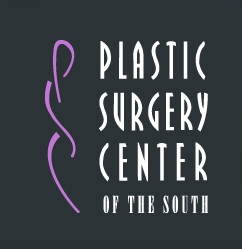Breast augmentation is the most commonly requested type of cosmetic surgical procedure in the US, according to the American Society of Plastic Surgeons. However, breasts serve another vital purpose beyond purely cosmetic concerns. New mothers and prospective parents should understand the potential risks of breast augmentation on the ability to breastfeed. While having breast augmentation doesn’t preclude breastfeeding your baby, it can alter how you go about it.
How Milk Production Works
The milk-producing mammary glands are so important to feeding the next generation that mammals are named after this unique ability to produce nutrition. During pregnancy, a cocktail of hormones readies the breasts for breastfeeding. Milk-producing glands in your breast tissue may begin production two to three months before the baby arrives. After the birth, the baby’s suckling triggers a cascade of hormones that causes the milk to flow. For some women, even thinking about breastfeeding may be enough to cause lactation.
Breastfeeding has been shown to boost an infant’s immune system and protect against illnesses such as diabetes later in life. While it’s an entirely natural process, getting started sometimes requires help from a lactation consultant. After breast augmentation, you may produce less milk, making a consultant even more vital to ensure a good breastfeeding experience.
The Science Behind Breastfeeding and Breast Augmentation
If your primary worry is whether your implants could leak into milk, the answer appears to be no. The Breastfeeding Network notes a French study that showed cow’s milk had approximately ten times more silicon than milk from women with silicone-based breast implants. No study yet conducted on breast implants suggests that the implants in any way affect the quality of the milk produced.
However, milk quantity is a different story. During surgery, milk glands may be disrupted and nerves may be severed. Because neural impulses from the breast to the brain help trigger the release of milk, a loss of sensation in breast tissue could lead to scanty milk production. Breast augmentation that results in nipple desensitization also makes it difficult to tell how much milk your baby has taken during a feeding. Implants that change the shape and size of breasts to the point that the nipple is pulled taut may present a latching problem for a baby’s small mouth.
Seeking Help for Breastfeeding with Implants
The type of surgery you get may help or hinder future breastfeeding attempts. Implants that lie beneath your muscles are less likely to cause nerve damage, while going in through the areola to avoid scarring may cause greater loss of sensation. Board certified plastic surgeon and lactation consultants are the best person you can turn to for specific breastfeeding advice; accredited doctors can help answer your questions before or after surgery and can help you address concerns about latching, milk production and discomfort.
Author: Lisa Moore has written several articles related to parenting and women’s issues. Some of those were posted on Parent24.com, ShannonMillerLifestyle.com, HeraldExtra.com/MomClick, ProfessorsHouse.com and many other sites. For questions send her email at lisa.moore80@yahoo.com.



